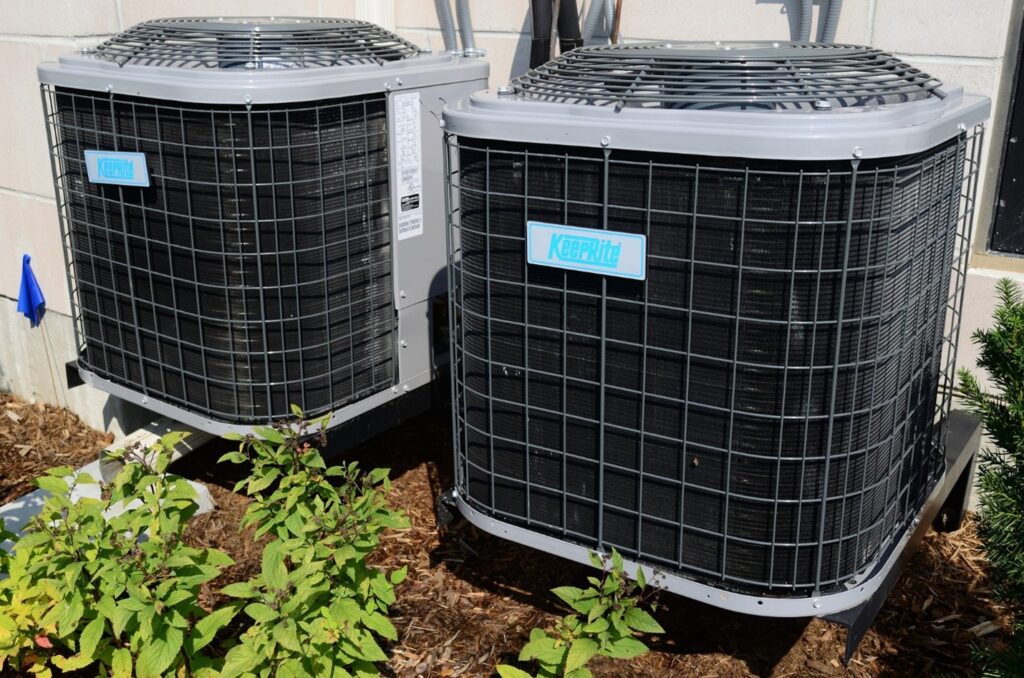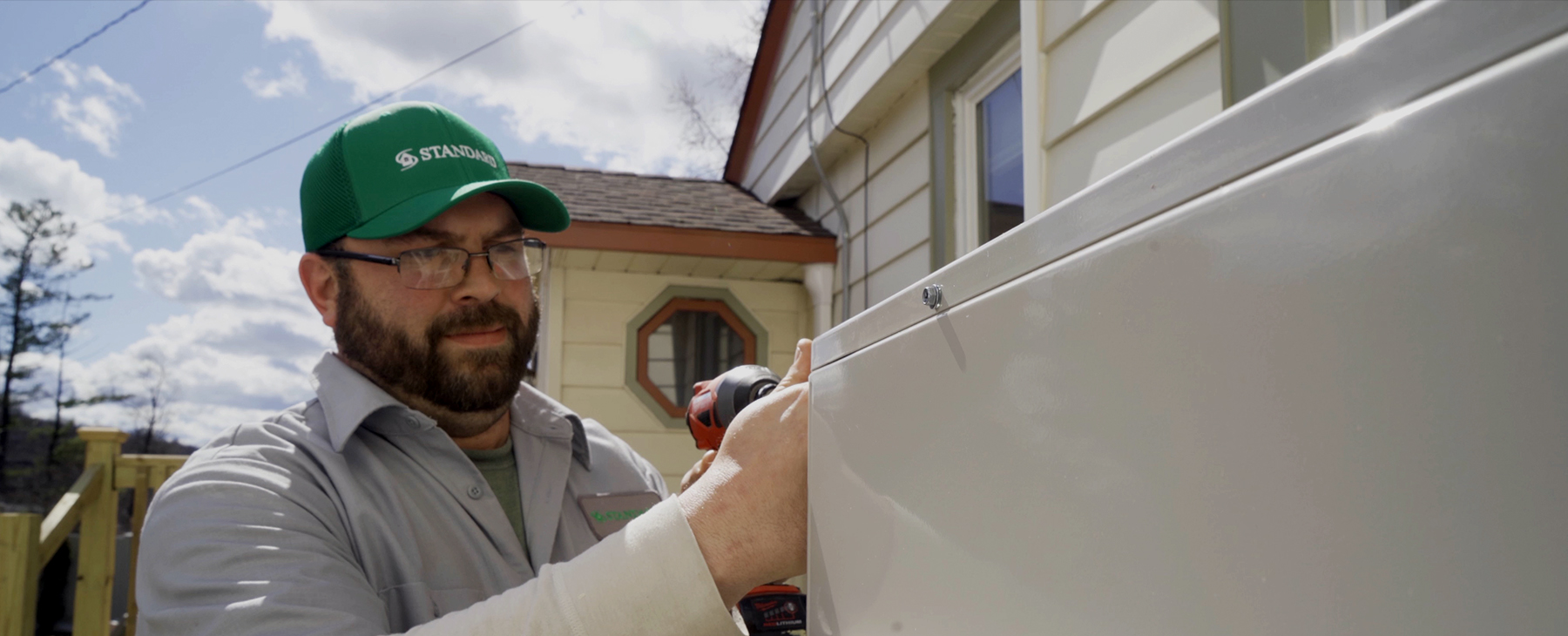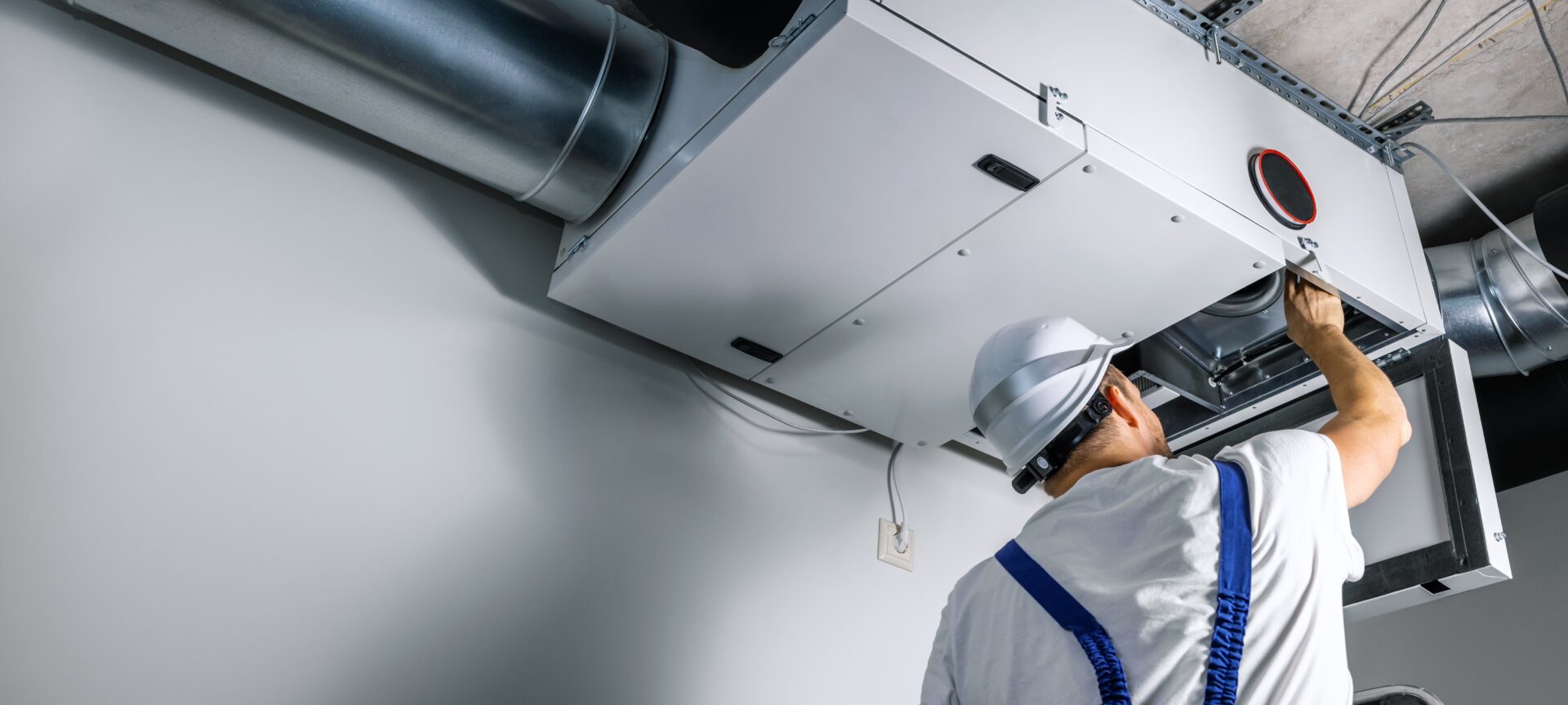What Is the Life Expectancy of HVAC Systems?

Installing, replacing, or upgrading an HVAC system is a significant investment that is necessary to maintain the comfort and energy efficiency of your property. Standard has provided expert sales, installation, and maintenance throughout the Capital Region for many years.
We know how important it is to understand what to expect from your equipment. We also know that household habits can extend or reduce the lifespan of an HVAC system. This brief guide is designed to help you get the most from your equipment.
The Average Life Expectancy of HVAC Systems
Some of the most common parts of HVAC systems include furnaces, boilers, heat pumps, central air conditioners, and ductless mini splits.
Signs that equipment may be nearing the end of its life cycle include frequent breakdowns, uneven temperatures in conditioned spaces, and unusual noises. Increased energy bills may also be an indication that the furnace is reaching its end.
But how long can each component be expected to last?
How Long Does a Furnace Last?
Most furnaces last an average of 15 to 20 years. Choosing a furnace that’s the right size and arranging professional installation is essential to maximizing its life expectancy.
How Long Does a Boiler Last?
Like furnaces, most boilers last 15 to 20 years, depending on the type. Cast iron and steam boilers last approximately 20 years, although some can last up to 50 years or more. High-efficient condensing boilers have an average lifespan of 15 years or more.
How Long Do Heat Pumps Last?
Most heat pumps last an average of 10 to 15 years, although some may function for up to 25 years. Heat pump manufacturers advise that proper installation and maintenance are the keys to getting the most years out of the equipment.
How Long Do Central Air Conditioners Last?
Like other aspects of an HVAC system, the average lifespan for central air conditioners ranges from 15 to 20 years.
Carrier, a respected HVAC equipment manufacturer, points out that getting the maximum number of years out of the investment starts with choosing quality equipment and expert installation.

How Long Do Ductless Mini Splits Last?
As with other HVAC components, there’s no absolute length of time a mini split will last. On average, these high-efficiency alternatives to traditional heating and cooling systems last at least 10 to 15 years, but many people have systems that work well for 20 years or more.
Factors That Impact How Long HVAC Systems Last
No matter how efficient and effective an HVAC system is, nothing lasts forever. However, several factors can decrease an HVAC system’s lifespan and should be avoided.
Improper Installation
HVAC installation isn’t a do-it-yourself project.
Quality furnace replacement and installation is critical to ensure the system functions at expected levels and performs efficiently. When HVAC systems aren’t installed according to the manufacturer’s specifications, efficiency can decrease by as much as 30%. Improper installation could also lead to increased wear and stress on components, ultimately resulting in premature system failure.
Inadequate Maintenance
HVAC systems are among the most critical and expensive features of a home. Without regular maintenance, systems are prone to more frequent breakdowns. You may also experience higher energy bills and replacement costs that could be avoided with preventive maintenance and cleaning.
Insufficient Insulation and Sealing
When a home, business, or other building lacks adequate insulation or air tightness, the HVAC system works significantly harder to maintain comfortable conditions.
Air leaking in and out of a property through cracks and other openings allows cool air to escape outside and hot air to enter during summer.
During the winter, heated air leaks out while allowing frigid drafts to blow inside.
These conditions force the air conditioning and heating system to work overtime to compensate. In fact, leaky ductwork alone can require HVAC systems to work approximately 20% harder.
Undersized or Oversizing the Unit
Choosing an HVAC unit that is sized appropriately for the square footage of the conditioned space is essential. When it’s undersized, the heating and cooling system may have to run continually to reach the desired temperature.
In addition to higher energy bills, this also causes stress on the system and may lead to frequent breakdowns and a shorter lifespan. An oversized HVAC system typically runs in short cycles that don’t adequately remove humidity and powers up and down frequently, putting the unit at risk of deterioration.
Ways to Maximize the Lifespan of Your HVAC System
Just as some habits can shorten the expected life of an HVAC system, others can help you get the most out of your HVAC. Four ways to maximize your HVAC’s lifespan include:
Ensure the System Is Properly Installed
Proper, professional installation is critical for all elements, including boiler replacement and installation, new furnaces, and other parts. Standard’s skilled technicians have the expertise needed to ensure proper HVAC installation to help extend the life of the system. We have been servicing the Mohawk Valley and Capital Region for more than 90 years, and we will continue to provide optimal solutions to meet each home and business’ needs.
Schedule Routine Tune-Ups and Maintenance
Regular maintenance and annual tune-ups can catch potential problems before it turns into costly disasters.
You wouldn’t drive a vehicle for years without getting the oil changed or go for years without getting a checkup at the doctor. Your HVAC also needs routine attention to clean parts that get dirty, replace those with substantial wear, and keep everything working in tip-top shape.
Check the Home or Business for Leaks
Replacing or upgrading insulation and sealing a home or business for optimal air tightness can maximize comfort and help your HVAC work more efficiently. In turn, it also helps you get the maximum number of years out of a system by reducing stress on various components and keeping spaces warmer in winter and cooler in summer.
Purchase a Correctly Sized System
Properly sized HVAC is essential to ensuring that it works efficiently to heat and cool interior spaces.
Working with professionals can help ensure AC installation and the installation of other components are done correctly with equipment that’s sized just right for the square footage of conditioned areas.
Systems that are too big or too small will run in short cycles that don’t adequately achieve the desired results or cycle too frequently.
In both cases, an incorrectly sized HVAC system rarely lasts as long as one that is the properly sized for the space.
Contact Standard for Professional Installation, Maintenance, and Repairs
Standard is your go-to HVAC company in the Mohawk Valley and Capital Region. From offering guidance to help you choose a system sized just right for your space to providing expert installation and performing routine maintenance, we are here to help.
Call Standard today at 800-738-1424 to learn more about our services and incentives today.



